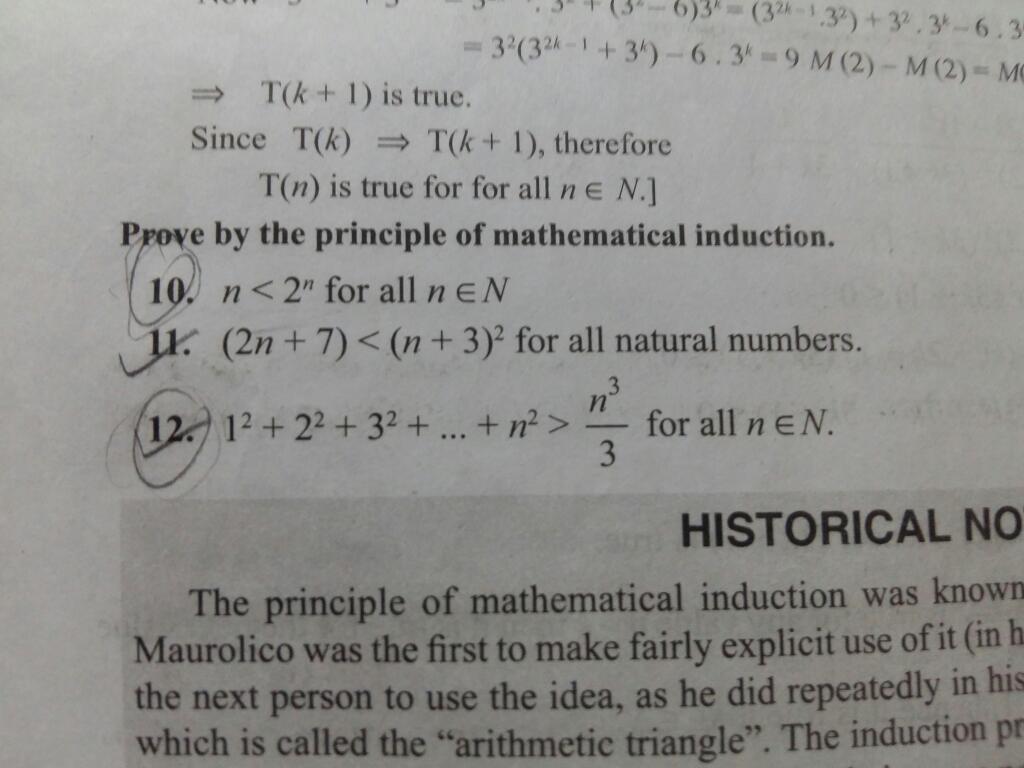CBSE Class 11-science Answered
Prove 10th by mathatical induction

Asked by lovemaan5500 | 02 Feb, 2019, 08:24: PM
n < 2n for all n  N
N
 N
NConsider, n = 1 we get
1 < 21 which is true.
Let us assume that n < 2n is true for k. Hence, k < 2k
We will prove this for k + 1.
To show that k + 1 < 2k + 1
We have
k < 2k
2k < 2 × 2k
k + k < 2k + 1
As k + 1 ≤ 2k + 1
k + 1 < 2k + 1
By mathematical induction n < 2n for all natural numbers.
Answered by Sneha shidid | 04 Feb, 2019, 11:22: AM
Concept Videos
CBSE 11-science - Maths
Asked by syedaliasad649 | 01 Oct, 2019, 07:07: PM
CBSE 11-science - Maths
Asked by lovemaan5500 | 02 Feb, 2019, 08:24: PM
CBSE 11-science - Maths
Asked by Topperlearning User | 04 Jun, 2014, 01:23: PM
CBSE 11-science - Maths
Asked by Topperlearning User | 04 Jun, 2014, 01:23: PM
CBSE 11-science - Maths
Asked by Topperlearning User | 04 Jun, 2014, 01:23: PM
CBSE 11-science - Maths
Asked by Topperlearning User | 15 May, 2014, 11:50: AM
CBSE 11-science - Maths
Asked by Topperlearning User | 04 Jun, 2014, 01:23: PM
CBSE 11-science - Maths
If P(n) is the statement 72n + 23n - 3.3n - 1 is divisible by 25 for all n  N, then what is P(k + 1)?
N, then what is P(k + 1)?
Asked by Topperlearning User | 04 Jun, 2014, 01:23: PM
CBSE 11-science - Maths
Asked by Topperlearning User | 04 Jun, 2014, 01:23: PM
CBSE 11-science - Maths
Asked by Topperlearning User | 04 Jun, 2014, 01:23: PM





